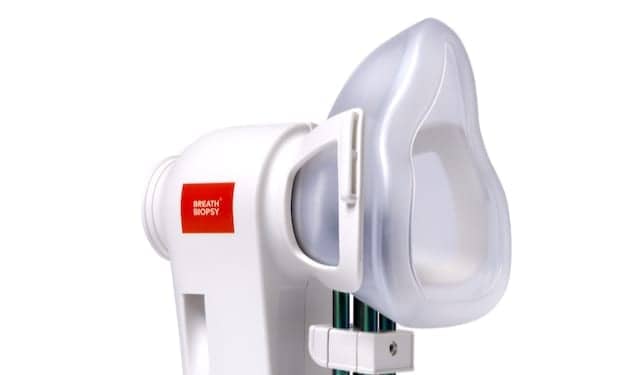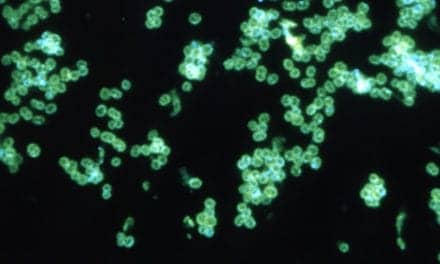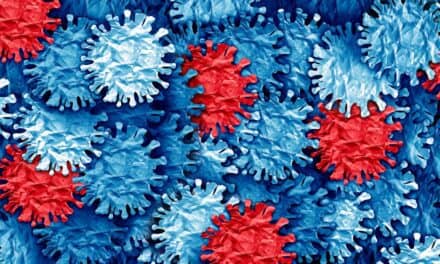Owlstone Medical, Cambridge, UK, has joined Taxonomy, Treatment, Targets, and Remission (3TR), a large-scale public–private research initiative that aims to provide new insights into the mechanisms of response and nonresponse to treatments for seven immune-mediated diseases: asthma, chronic obstructive pulmonary disease (COPD), inflammatory bowel disease (including ulcerative colitis and Crohn’s disease), multiple sclerosis, rheumatoid arthritis, and systemic lupus erythematosus.
Owlstone will initially provide breath biopsy stations and kits for the collection of breath samples as well as analytical services for multiple academic-led trials for asthma and COPD that have been identified as suitable to include breath sampling, alongside clinical and physiological evaluation and blood analysis. However, the use of breath biopsy could extend into additional study areas as the 3TR initiative proceeds. Owlstone will have full access to the data generated and the rights to develop biomarkers discovered in clinical tests.
The 3TR project unites renowned, interdisciplinary experts from 69 academic and industrial institutions covering 15 European countries. Under the initiative, 3TR will have access to an unprecedented quantity of clinical data and samples from more than 50,000 patients across 50 new and ongoing clinical trials, with the ultimate goal of discovering and verifying stratification biomarkers to improve patient management.
Autoimmune, inflammatory, and allergic diseases are common chronic diseases that significantly affect the well-being of millions of people worldwide and pose a substantial burden to healthcare systems. While a variety of treatments are available, response and disease progression among individual patients remain unpredictable, which can hamper the management of their disease.
The 3TR project aims to increase fundamental knowledge of the molecular pathways and mechanisms linked to response and nonresponse to a range of therapies for the seven immune-mediated, allergic, and inflammatory diseases.
Despite their heterogeneity, recent studies have shown that on the molecular level certain patterns are shared by patients across the diseases under study, suggesting that they may also share pathways of response to treatment and disease progression.
“For the first time, the 3TR team will align and integrate the analysis of autoimmune, allergic, and inflammatory conditions to identify the relationship between longitudinal molecular and microbiome profiles in blood cells and tissues and disease paths. In a unique approach we will study the seven diseases both in parallel and jointly,” says Marta Alarcón-Riquelme, scientific coordinator of 3TR and head of medical genomics in the GENYO center at the Fundación Pública Andaluza Progreso y Salud. “We believe that this high-resolution multiomics profiling analysis of individualized response to treatment and disease progression will facilitate stratification and identification of molecular patterns that better predict response or nonresponse to therapy. This comprehensive approach will help identify biomarkers to improve patient management within these diseases.”
“Currently, too little is known about the molecular basis underpinning autoimmune, inflammatory, and allergic diseases,” says Billy Boyle, cofounder and CEO of Owlstone Medical. “A deeper understanding of the cellular mechanisms driving disease development is urgently needed, which will support the discovery of novel biomarkers on breath or other sample types that can be deployed to detect disease earlier and to drive improved patient outcomes.”
Data generated within the project will be gathered on a centralized data management platform, which will enable detailed and comprehensive state-of-the-art bioinformatics and biostatistics analyses based on machine learning and dynamic, mechanistic methods. By involving medical associations in close relationship with patient groups, 3TR will also contribute to swiftly translating relevant knowledge and project outcomes into clinics.
The 3TR project is funded over the next 7 years with more than $88 million from the Innovative Medicine Initiative 2, a joint undertaking of the European Union and the European Federation of Pharmaceutical Industries and Associations.
For further information, visit Owlstone Medical.
Featured image: The Owlstone Medical Breath Biopsy device.






